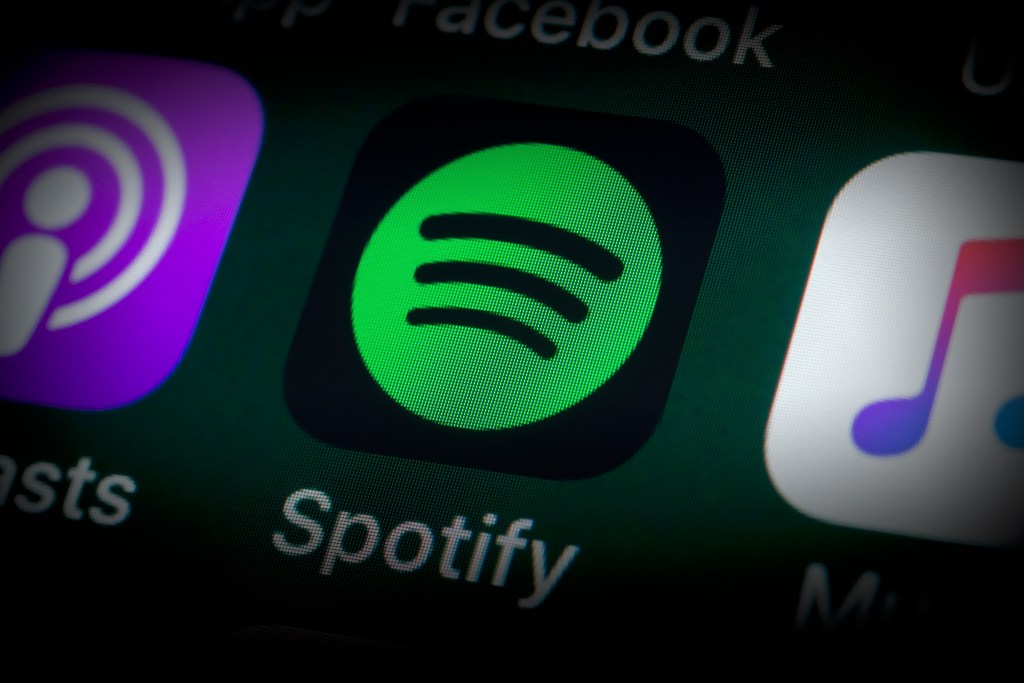The coronavirus may be decimating some corners of the economy, but the impact on the digital music, as evidenced by the world’s biggest music streaming company, appears to be minimal. Today Spotify reported its earnings for Q1 with revenues of €1.848 billion ($2 billion at today’s rates) and an inching into a positive net income of $1 million. Monthly active users (not total subscribers) now stand at 286 million, with paid (premium) users at 130 million and ad-supported monthly active users at 163 million. Ad-supported users are growing at a slightly higher rate at the moment, at 32% versus 31%, Spotify said.
Spotify beat analysts’ forecasts on both sales — they had on average been expecting revenues of $1.86 billion — and EPS, which had been forecast to be -$0.49 but came in at -$0.20 on a diluted basis and $0.00 undiluted.
The numbers underscore the positive signals we’ve had from the wider industry. More generally, we have seen a huge boost in streaming media services — including video as well — as more people are staying home and looking for ways to be entertained. Furthermore, earnings this month from at least one music label, Universal Music Group, also showed little impact from the coronavirus pandemic.
“Despite the global uncertainty around COVID-19 in Q1, our business met or exceeded our forecast for all major metrics,” the company wrote in its introduction to shareholders. “For Q2 and the remainder of the year, our outlook for most of our key performance indicators has remained unchanged with the exception of revenue where a slowdown in advertising and significant changes in currency rates are having an impact.”
In other words, while overall numbers appear to be stable, that is not to say that there haven’t been pockets of decline for the company in specific markets and product areas.
For example, Italy and Spain, two traditionally strong markets for Spotify, have been some of the hardest-hit by COVID-19 and its wider economic impacts, and in line with that, Spotify said it “saw a notable decline in Daily Active Users and consumption” in these markets. And in keeping with the countries both seeing a stabilisation in their new cases, both are now starting rebound and recover.
And listening patterns are also changing, it said. “Every day now looks like the weekend,” it said. (I know what they mean…)
Usage in car, wearable and web platforms have all dropped, but TV and game console use have grown more than 50% compared to a year ago. Ad-supported MAU in the US via game consoles has been a top 2 or 3 platform in terms of consumption for the better part of the month, and connected device usage generally is up more than 40% among ad-supported users globally, it noted.
Listening time around activities like cooking, doing chores, family time, and relaxing at home have each been up double digits over the past few weeks, it said. “Audio has also taken on a greater role in managing the stress and anxiety many are feeling in today’s unprecedented environment,” it offered as its explanation for the use. (Again, inclined to agree with this using a sample size of my own household.)
In terms of subscriber numbers, free users continue to outpace those who pay monthly, and continue to be a springboard for upselling to paid tiers, and seems to be an even stronger model in the current climate.
“The past few months have only strengthened our belief in the Freemium model,” the company noted. “As mentioned, we have seen strong growth in users, both new and returning. Historically, over 60% of our Premium users start as Ad-Supported users, so continuing to grow the top of the funnel is very healthy for our ecosystem. We also know that roughly 70% of churned users are back with Spotify within 45 days of leaving, which includes coming back through either our Premium or Ad-Supported experience. While our sincere hope is for some sense of ‘normalcy’ to return to people’s lives as quickly as possible, we do believe our model is uniquely positioned to not just weather this storm, but to come out the other side even stronger.”
Also of note: the company’s shift to making more of its own content — note here the big boost we’ve seen in its podcasting business — seems to be paying off dividends.
Gross margins, it pointed out, were at 25.5% and “exceeded our expectations and finished at the high end of our guidance range.” The reason, it said, was “the core royalty component due to product mix, offset somewhat by one-time reductions.” This will be impacted because of a slowdown in production at the current time.
The company announced at the start of this month (so not part of these earnings that end March 30) a new global licensing partnership with Warner Music Group that covers more markets. That will not, however, see a change in royalty fees as such, but will give Spotify a wider pool of music in more markets, and perhaps access to other IP, given Spotify’s wider remit these days across podcasts, artist marketing services and more.
“We are pleased with the outcome, and as stated previously, do not believe the new deal will materially impact music economics,” it wrote. “We look forward to working together with Warner to grow the music industry over the long term.”
Spotify has been fully working remotely for the last seven weeks, and unlike a number of other tech businesses it has not seen any layoffs so far. It did note that it would be reducing hiring, however, for the rest of 2020, reducing previous numbers by 30%.






























Comment